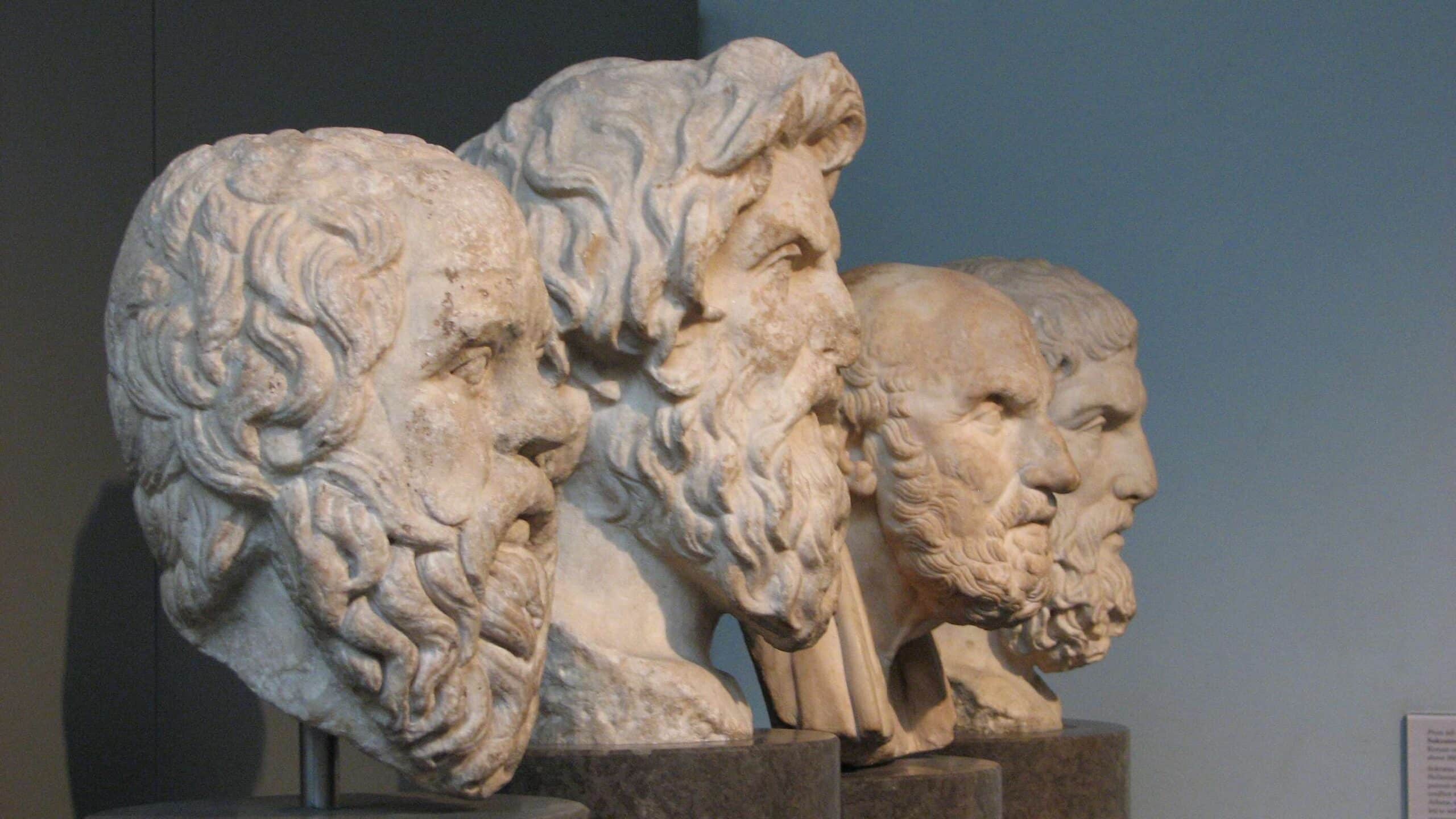

Over 2,000 years ago, a Greek philosopher named Chrysippus of Soli became the subject of one of history’s most peculiar death stories. Widely regarded as a key figure in Stoicism, Greek philosopher Chrysippus reportedly died laughing at his own joke.
Born around 280 BC in the ancient Greek city of Soli (Greek: Σόλοι), near modern-day Mersin, Turkey, Chrysippus lived during the Hellenistic period, marked by political upheaval and philosophical change. After Alexander the Great’s death in 323 BC, Greek city-states lost their independence, becoming pawns in the power struggles of emerging rulers. Philosophy, too, transformed. Thinkers shifted focus from cosmic questions to personal ethics and pursuing a meaningful life.
Chrysippus studied under Cleanthes, the head of the Stoic School in Athens, and quickly gained a reputation for intellectual rigor and audacity. He became known for his ability to argue both sides of an issue thoroughly, producing nearly 750 works exploring logic, ethics, and human behavior.
Around 230 BC, he succeeded Cleanthes as the leader of the Stoic School, cementing his influence on the philosophical movement. Though none of his works have survived intact, his ideas are preserved through later writers.
Chrysippus’ death in 206 BC, during the 143rd Olympiad, has been documented in two conflicting accounts by ancient historian Diogenes Laertius. One version claims he attended the Olympic Games and witnessed a donkey eating his figs.
Amused, he joked that someone should give the animals wine to wash them down. Overcome with laughter, he reportedly convulsed and died.
The second account is more grounded: Chrysippus allegedly consumed excessive undiluted wine at a feast, leading to dizziness and his eventual death. Diogenes himself suggested alcohol poisoning was a more plausible explanation. The truth, however, remains unclear, as forensic sciences in ancient times were nonexistent and stoic philosophers did not act like that.
It’s worth mentioning that Stoicism, the philosophy Chrysippus is known for, emphasizes self-control, moderation, and rational behavior. It would be unusual for such a prominent Stoic philosopher to indulge in excess, given the focus on temperance and mental discipline inherent in Stoic teachings. Therefore, stories of his death—whether from excessive wine or laughter—seem out of place, contradicting the principles he championed.
The notion of dying from laughter, while rare, is not entirely implausible. Medical experts recognize conditions like gelastic syncope, where intense laughter can cause atonia (loss of muscle strength) and fainting due to reduced blood flow to the brain.
In extreme cases, laughter may trigger asphyxiation, cardiac arrest, or even brainstem damage, potentially leading to death. However, such cases are exceedingly rare.
Chrysippus is not the only historical figure associated with death by laughter. Zeuxis, a 5th-century BC Greek painter, reportedly died while laughing at his own depiction of the goddess Aphrodite as an old woman—a tale interpreted by some as divine punishment.
In more recent history, a 62-year-old fan of Seinfeld nearly died in 1979 after fainting three times while watching a particularly funny episode. These examples highlight the unusual and timeless nature of laughter-induced incidents.
Despite his remarkable achievements as a philosopher, Chrysippus is often remembered as the Greek philosopher who died laughing.
Whether he succumbed to laughter or wine, the story carries a unique irony: a Stoic thinker, who taught emotional discipline, potentially undone by a moment of unrestrained humor or indulgence.
The ambiguity surrounding Chrysippus’ death raises questions about historical storytelling. Did Laertius embellish his accounts for entertainment? Was the tale of laughter an exaggeration to add intrigue to the philosopher’s legacy?
While the true cause of his death will likely never be known, the story endures as a whimsical yet poignant reminder of life’s unpredictability.
Chrysippus’ legacy as a philosopher remains unquestioned. He was a towering figure of his age, offering wisdom and guidance to people in a time of uncertainty. That his life ended in such a peculiar and ironic way only deepens the fascination surrounding him—a man who sought to master human emotions yet became immortalized by the most uncontrollable one: laughter.
